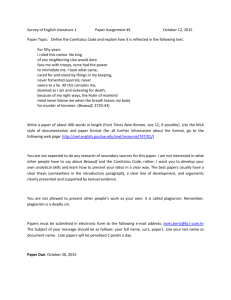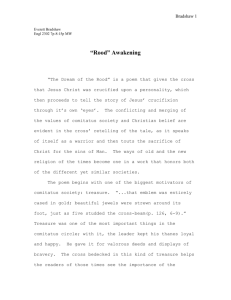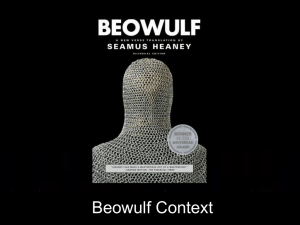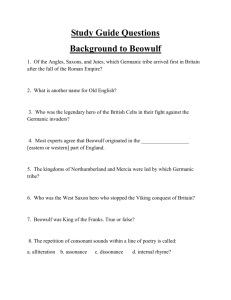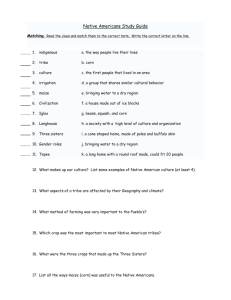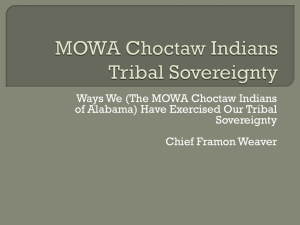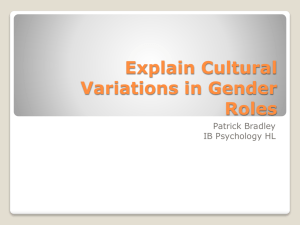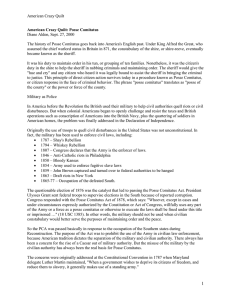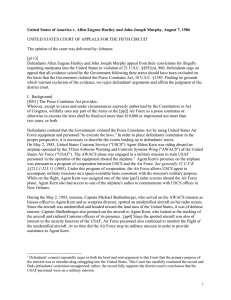Comitatus in Beowulf
advertisement
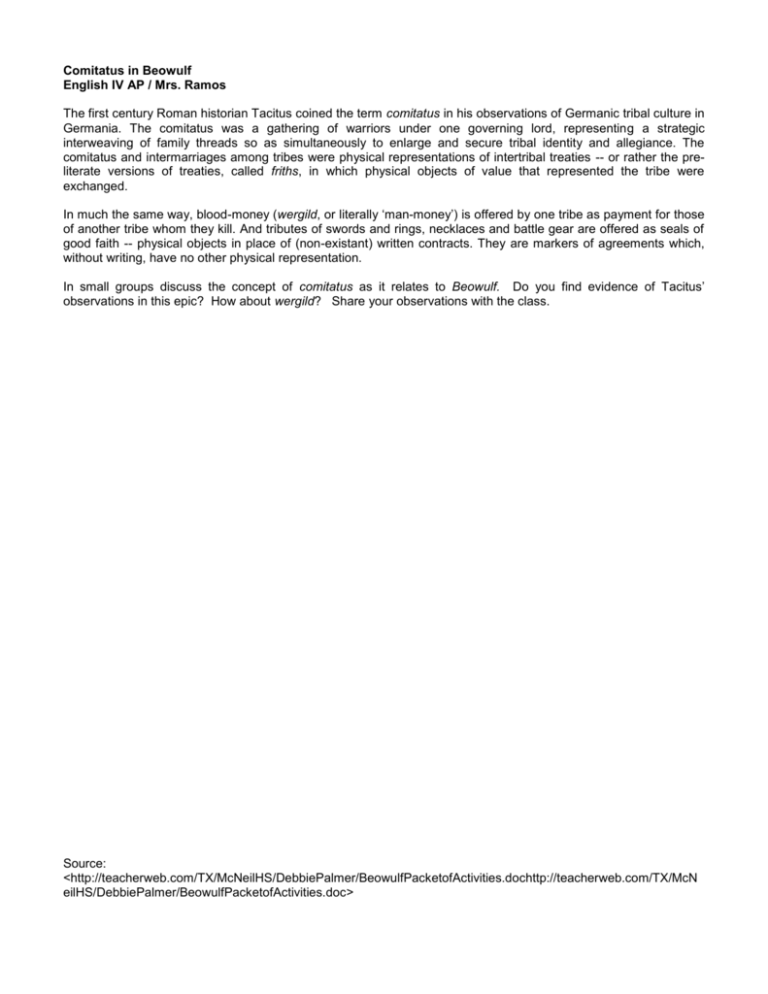
Comitatus in Beowulf English IV AP / Mrs. Ramos The first century Roman historian Tacitus coined the term comitatus in his observations of Germanic tribal culture in Germania. The comitatus was a gathering of warriors under one governing lord, representing a strategic interweaving of family threads so as simultaneously to enlarge and secure tribal identity and allegiance. The comitatus and intermarriages among tribes were physical representations of intertribal treaties -- or rather the preliterate versions of treaties, called friths, in which physical objects of value that represented the tribe were exchanged. In much the same way, blood-money (wergild, or literally ‘man-money’) is offered by one tribe as payment for those of another tribe whom they kill. And tributes of swords and rings, necklaces and battle gear are offered as seals of good faith -- physical objects in place of (non-existant) written contracts. They are markers of agreements which, without writing, have no other physical representation. In small groups discuss the concept of comitatus as it relates to Beowulf. Do you find evidence of Tacitus’ observations in this epic? How about wergild? Share your observations with the class. Source: <http://teacherweb.com/TX/McNeilHS/DebbiePalmer/BeowulfPacketofActivities.dochttp://teacherweb.com/TX/McN eilHS/DebbiePalmer/BeowulfPacketofActivities.doc>

